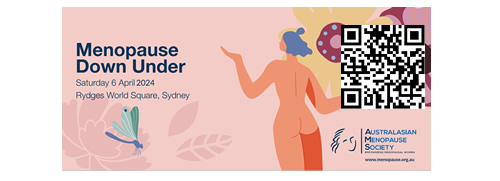Women who start their period later, go through menopause earlier or have a hysterectomy may have a greater risk of developing dementia, according to a new study published in the March 27, 2019, online issue of Neurology®, the medical journal of the American Academy of Neurology. The study found a link between increased risk of dementia and fewer total reproductive years when women are exposed to higher levels of estrogen hormones.
"Since women are 50 percent more likely to develop dementia over their lifetimes than men, it's important to study any risk factors that are specific to women that could eventually lead us to potential points of intervention," said study author Paola Gilsanz, ScD, of Kaiser Permanente Division of Research in Oakland, Calif.
The study involved 6,137 women who were members of Kaiser Permanente Northern California. Participants completed health surveys and had medical exams. They were asked when they had their first menstrual cycle, when they went through menopause and if they had a hysterectomy. Researchers then calculated the number of reproductive years for each participant. Researchers also used medical records to determine which participants received a diagnosis of dementia later in life.
Participants' average age of first period was 13, average age of menopause was 45 and average total number of reproductive years was 32, and 34 percent reported a hysterectomy. When looking at only women who did not have hysterectomy, average age of menopause was 47 and average total number of reproductive years was 34.
Of all participants, 42 percent later developed dementia.
Researchers found that women who had their first menstrual cycle at age 16 or older had a 23 percent greater risk of dementia than women who had their first menstrual cycle at age 13. Of the 258 women who had their first menstrual cycle at age 16 or older, 120 later developed dementia, compared to 511 of the 1,188 women who had their first menstrual cycle at age 13.
They also found that women who went through natural menopause before age 47 had a 19 percent greater risk of dementia than women who went through menopause at age 47 or older. Of the 1,645 women who entered menopause at 47 or younger, 700 later developed dementia, compared to 1052 of the 2,402 women who entered menopause at age 47 or older.
When looking at total reproductive years, from the age of first period to the age of menopause, women who had fewer than 34 years had a 20 percent greater risk of dementia than women who had 34 or more reproductive years. Of the 1,702 women who had fewer than 34 total reproductive years, 728 later developed dementia, compared to 1024 of the 2,345 women who entered menopause at age 47 or older.
Women who had hysterectomies had an 8 percent greater risk of dementia than those who did not.
The results were all after researchers adjusted for other factors that could affect the women's risk of dementia, such as smoking, diabetes and high blood pressure.
"Estrogen levels can go up and down throughout a woman's lifetime," said Gilsanz. "Our results show that less exposure to estrogen over the course of a lifetime is linked to an increased risk of dementia. However, while our study was large, we did not have enough data to account for other factors that could affect estrogen levels, like pregnancies, hormone replacement therapy or birth control, so more research is needed."
Abstract
OBJECTIVE:
Women have >50% greater lifetime risk of dementia than men but the role of female-specific endocrine milieu is not well-understood. This study evaluates associations between indicators of estrogen exposure from women's reproductive period and dementia risk in a large diverse population.
METHODS:
We evaluated 15,754 female members (29.9% nonwhite) of Kaiser Permanente with clinical examinations and health survey data from 1964 to 1973 and were members as of January 1, 1996. In midlife (mean age 51.1 years), women reported age at menarche and menopause and hysterectomy status. Reproductive span was calculated as menopause age minus menarche age. Dementia diagnoses were abstracted from January 1, 1996 to September 30, 2017 medical records (mean age at start of dementia follow-up 76.5 years). Cox proportional hazard models evaluated associations between aspects of reproductive span and dementia risk adjusting for demographics and life course health indicators.
RESULTS:
Forty-two percent of women developed dementia. Compared to menarche at age 13.0 (mean menarche age), menarche at ≥16 was associated with 23% greater dementia risk (adjusted hazard ratio [HR] 1.23; 95% confidence interval [CI] 1.01-1.50) adjusting for demographics and life course health indicators. Natural menopause at age <47.4 (mean menopause age) was associated with 19% elevated dementia risk (HR 1.19; 95% CI 1.07-1.31). Reproductive spans <34.4 years (mean duration) were associated with 20% elevated dementia risk (HR 1.20; 95% CI 1.08-1.32). Hysterectomies were associated with 8% elevated dementia risk (HR 1.08; 95% CI 1.01-1.16).
CONCLUSION:
In this large prospective cohort study, endocrine events signaling less estradiol exposure (i.e., later age at menarche, younger age at menopause, shorter reproductive span, and hysterectomies) were associated with elevated risk of dementia.
Reference
Gilsanz P, Lee C, Corrada MM, Kawas CH, Quesenberry CP Jr, Whitmer RA. Reproductive period and risk of dementia in a diverse cohort of health care members. Neurology. 2019 Apr 23;92(17):e2005-e2014. doi: 10.1212/WNL.0000000000007326. Epub 2019 Mar 28.
Content created April 2019






